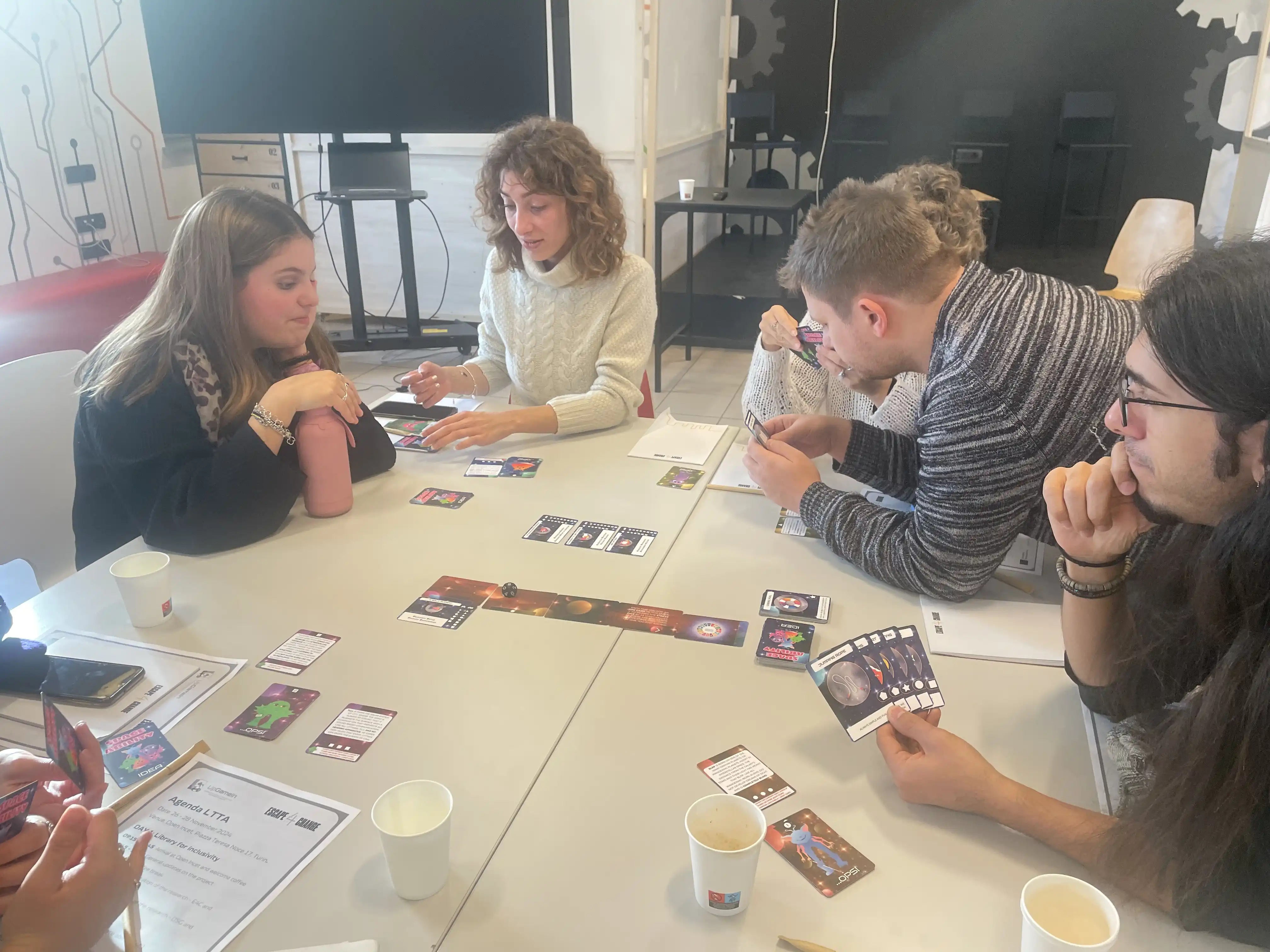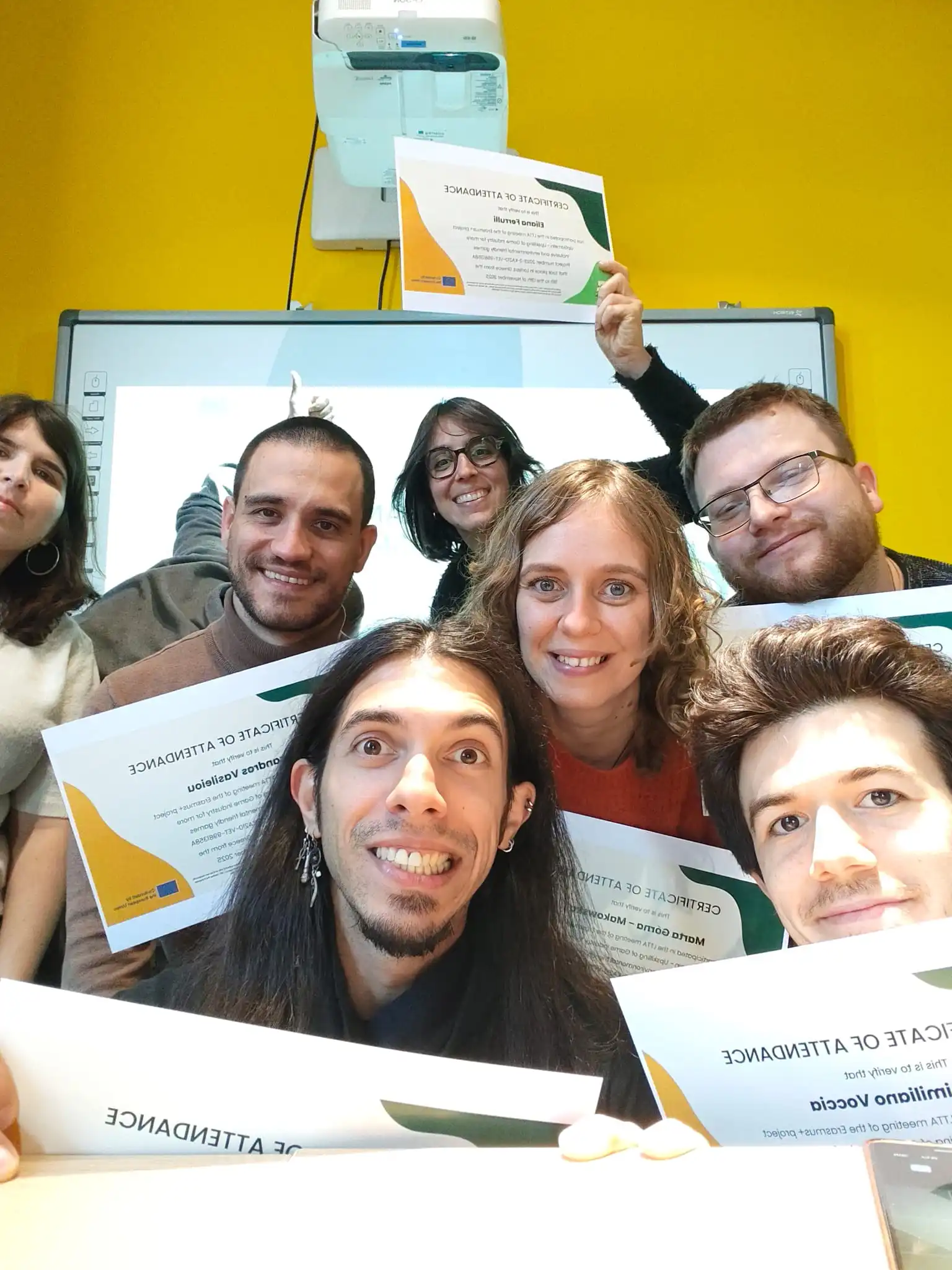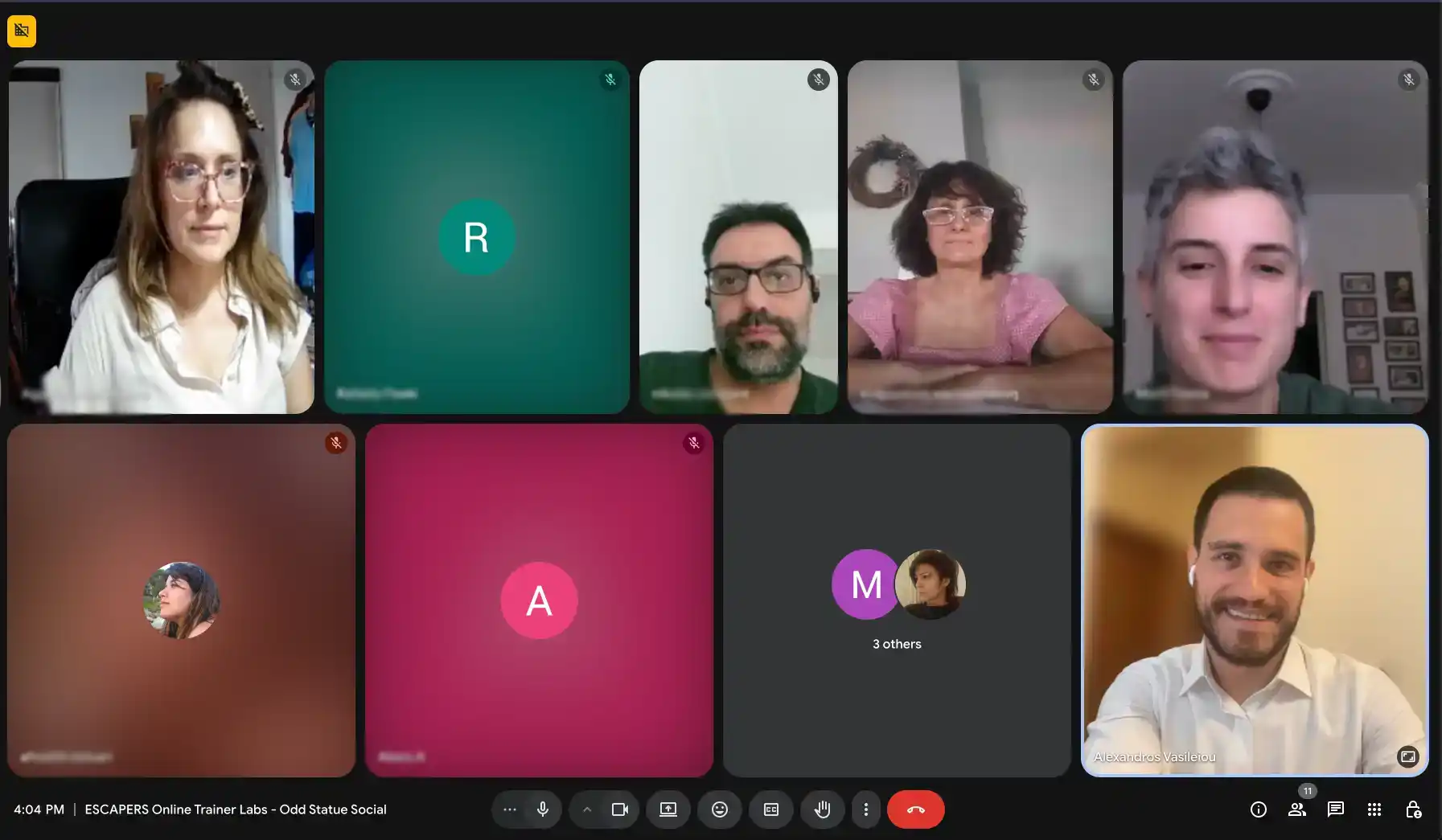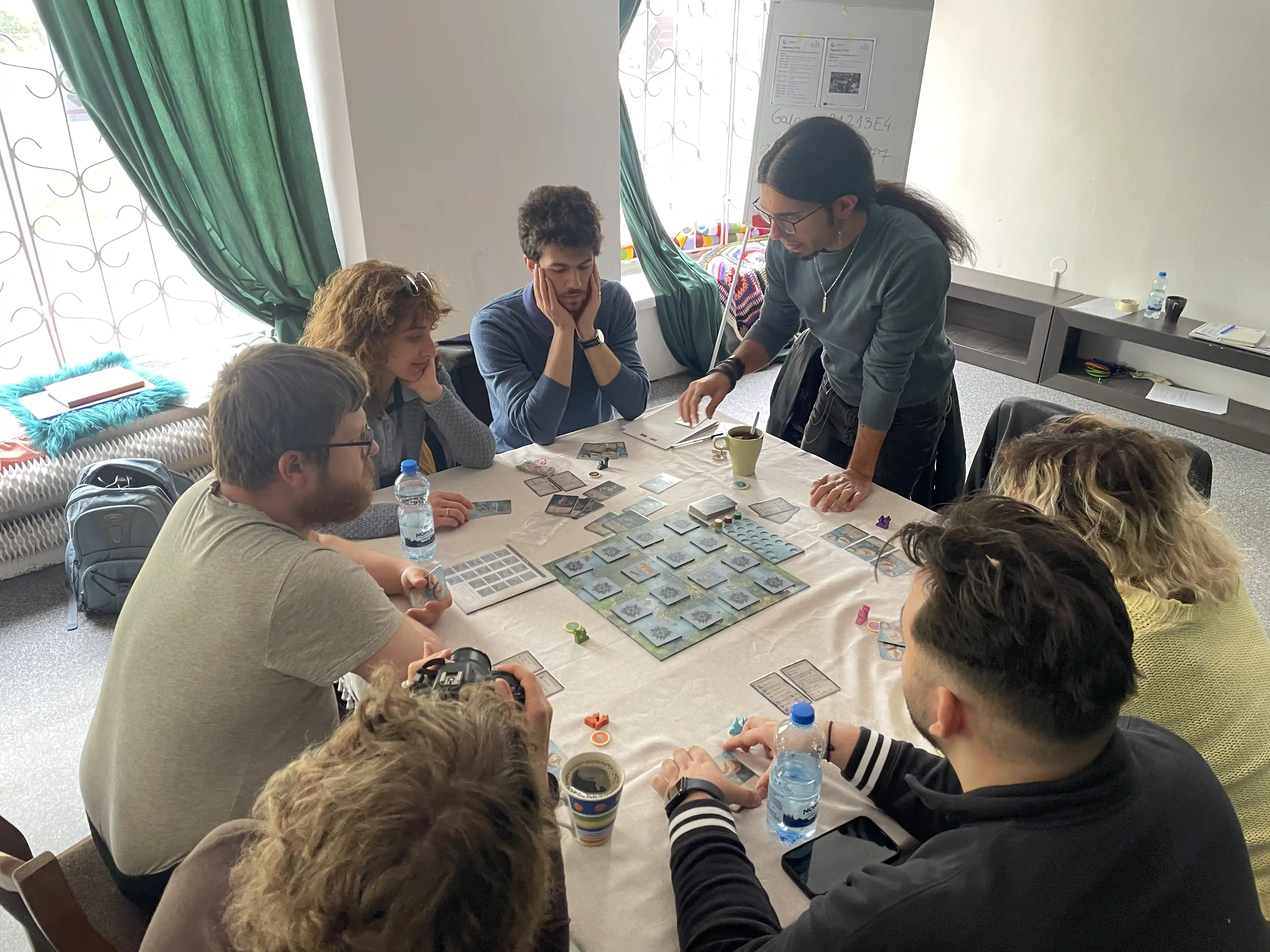

How do you turn an abstract idea like “inclusion” into a practical guide for game designers? This was the central challenge we tackled at our recent Learning, Teaching, and Training Activity (LTTA) for the UpGameIn project, hosted by our partners, Escape4Change, in the vibrant city of Turin, Italy.
The Goal: From Individual Research to Collective Synthesis
Each partner arrived in Turin having completed extensive research on best practices in accessibility and inclusion in gaming. The goal of the three-day workshop was not to write the guide, but something equally important: to share this knowledge, synthesize our different perspectives, and create a common foundation of understanding upon which the project’s first major deliverable will be built.
The Process: A Dive into Collaboration
Our days were filled with intense and productive activities that prepared the ground for the writing phase:
- Presentations and Analysis: Each organization presented its research findings. We shared case studies, from AAA games with groundbreaking accessibility options to small indie gems that tell stories of marginalized communities.
- Fruitful Discussions and Idea Exchange: The presentations sparked deep conversations. What does inclusion truly mean? What are the biggest challenges for an independent developer? How can we make our advice practical and not just theoretical?
- Learning Through Play: Our hosts, Escape4Change, had us play one of their own games focused on inclusion. It was a powerful reminder of how game mechanics can evoke deep empathy and serve as a starting point for critical thinking.
The Outcome: A Shared Compass for the Way Forward
We left Turin not with a ready-made skeleton for the guide, but with something more valuable: a shared compass. We now had a collective understanding of the priorities, challenges, and opportunities. This alignment and the inspiration drawn from our discussions and the game were the true foundations that were laid.
The LTTA in Turin was the necessary step that prepared us for the next phase: the final writing of the guide. It proved that the best way to write a guide on how to build better worlds is to start by building a better, more coordinated team.


